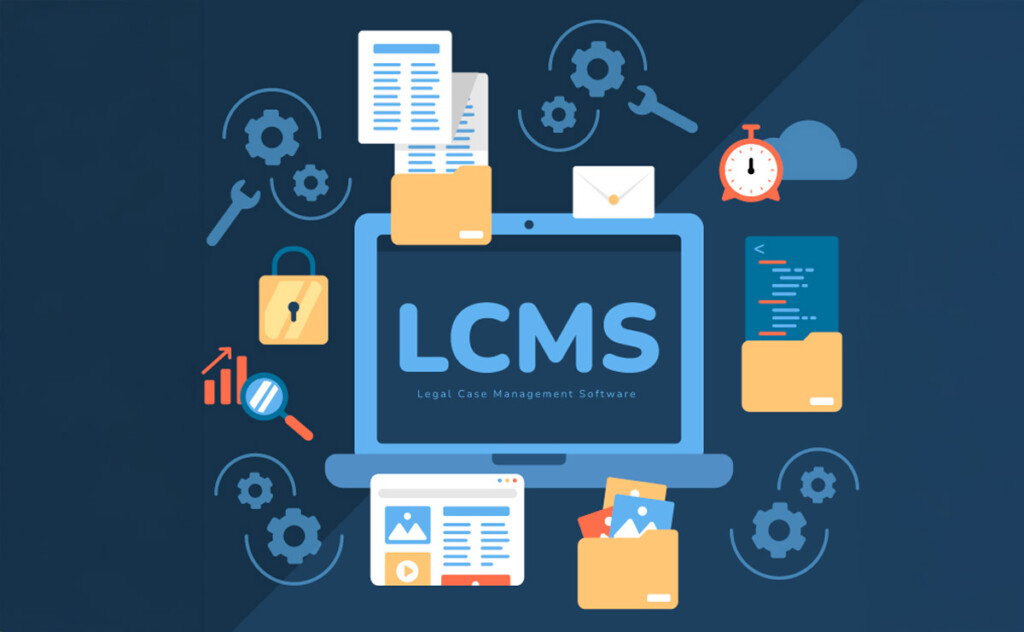A New Era of Legal Practice: Leveraging Technology for Operational Excellence Legal Case Management Software
The legal profession is undergoing a significant transformation driven by technological advancement. For many years, legal firms have been stuck in traditional methods of case management that rely on manual processes, paper documents, and time-consuming workflows. However, as technology continues to evolve, so too does the way law firms operate. The adoption of digital tools has become not only a convenience but a necessity for firms looking to maintain competitiveness by delivering high-quality service.
According to a recent survey by the Thomson Reuters Institute, 75% of experienced operations professionals in legal departments think that technology simplification in workflows is a top priority. This has brought LCMS to the forefront of legal innovation. In this article, we will explore how legal case management software is helping lawyers be more operationally efficient, save costs, and improve their relationships with clients.
The Challenges in Traditional Legal Case Management
The traditional ways of doing things were a burden to legal practices as they introduced inefficiencies and errors. Today, most law firms still rely on traditional methods such as physical paperwork, manual timekeeping, and siloed communication channels. The reliance on these outdated systems creates huge challenges in day-to-day operations.
- Common Inefficiencies in Manual Case Handling: Manual case handling often results in redundant activities, time-consuming document searches, and inconsistent workflows. For instance, when a legal professional has to sort through physical files to search for case information, it considerably slows down the process. This inefficiency not only increases the time taken to make decisions but also increases the risk of missing critical deadlines or information.
- Challenges of Paper-based Workflows: Paper-based workflows are notorious for lack of organization and vulnerability in terms of security and compliance. Lost or misplaced files lead to costly errors, while hundreds or thousands of paper documents can consume significant storage space and ongoing maintenance. The inability to share and access information easily also hampers the overall efficiency of the firm.
- Communication and Collaboration Difficulties in Law Firms: In a traditional law firm setup, there is scattered communication that tends to be done via email, phone calls, or face-to-face meetings, leading to a challenge of knowing who said what and when, which may result in misunderstandings, missing messages, and delay in responding to clients or colleagues. Moreover, teams that operate remotely or from different offices encounter even more significant challenges regarding collaboration.

What is legal case management software?
Legal case management software is designed to help a legal professional organize, track, and manage his or her cases, documents, and communications in one system. These particular tools are adapted to meet the unique needs of law firms, providing features that streamline workflows, improve collaboration, and ensure compliance with legal and regulatory standards.
The purpose of LCMS is to simplify the administrative burden on legal professionals, freeing them up to focus on more strategic, client-facing tasks. The software helps firms manage all aspects of case handling, from initial client intake to final resolution.
Key Features of Legal Case Management Tools
- Document Management: A robust document management system, combined with legal document automation for law firms makes way for a more secure storage, organization, and sharing of documents. Lawyers can quickly retrieve files, automate routine document creation, collaborate on documents, and ensure version control, minimizing errors and improving efficiency.
- Time Tracking and Billing: Time tracking and billing functionality allow law firms to accurately capture billable hours and ensure that clients are invoiced correctly. This feature automates time entry, reducing the administrative burden associated with manual time tracking.
- Task Automation and Calendaring: Legal case management software includes task automation tools that schedule and track deadlines, meetings, and hearings. With integrated calendaring, legal professionals are reminded of important events, reducing the risk of missed deadlines.
- Client Communication Tools: Many LCMS platforms offer communication tools that facilitate secure and transparent communication between clients and lawyers. These tools improve client satisfaction and allow for faster response times.
How Legal Case Management Software Improves Operational Efficiency
Many firms are embracing legal case management software as they modernize their operations. A recent survey done by Corporate Counsel Business Journal (CCBJ), in partnership with Agiloft and Mitratech, indicated that 42% of legal professionals are dependent on internal web portals, 41% on document management systems, and 39% on e-billing and litigation support systems. While these individual tools do provide some efficiency gains, a centralized LCMS integrates all of these functionalities into one cohesive platform.
- Streamlining Case Documentation and Workflow Management: One of the most significant benefits of LCMS is its ability to centralize case documentation. With all relevant files stored in one location, legal professionals can access the information they need quickly, reducing the time spent searching for documents. Additionally, integrated workflow management tools ensure that every step of the case is tracked, from intake to resolution, improving the overall efficiency of case handling.
- Reducing Administrative Burden: Administrative tasks like time tracking, billing, and document preparation can consume a large portion of a lawyer’s day. Legal case management software automates many of these tasks, allowing lawyers to focus on higher-value activities. With integrated billing systems, firms can also reduce errors and improve cash flow by ensuring timely and accurate invoicing.
- Enhancing Client Service and Communication: Client communication is a crucial component of legal practice, and LCMS tools make it easier to stay in touch with clients and provide them with timely updates. Many platforms offer secure portals where clients can access their case details, reducing the need for constant back-and-forth communication. This transparency leads to higher levels of client satisfaction and stronger client relationships.
- Facilitating Collaboration Within Legal Teams: For firms with multiple attorneys or departments, collaboration can often be a challenge. Legal case management software enhances collaboration by providing a shared platform where all team members can access case information and contribute to the case’s progress. This centralized approach ensures that everyone is on the same page, regardless of location.
Key Benefits of Leveraging Legal Case Management Technology
Legal case management software offers operational benefits that go far beyond mere convenience. It brings substantial improvements in the way law firms operate.
- Time and Cost Savings: According to a Thomson Reuters survey, 84% of legal departments view controlling costs as a top priority. Legal case management software helps firms save time and money through reductions in administrative overhead, improved productivity, and error minimization.
- Improved Accuracy and Reduced Errors: Human error is common in manual processes, and even small mistakes can lead to costly legal or financial repercussions. Automating routine tasks minimizes the chances of errors and ensures that all documents and communications are accurate.
- Enhanced Data Security and Compliance: The sensitive nature of information in the case files of legal firms has always been a cause of concern. The encrypted storage and communication channels provided by the software will help firms achieve the level of compliance needed.
- Better Client Outcomes and Retention: The ultimate consequence of efficiency, improved communication, and transparency is better outcomes on behalf of clients. Clients return to a firm that delivers timely, efficient, and high-quality service, enhancing retention and fostering long-term relationships.
Selecting the Right Legal Case Management Software
Choosing the right legal case management software is crucial to maximizing its benefits. Here are several factors that law firms should consider:
- User Interface and Ease of Use: The software should be intuitive and easy to navigate, ensuring that legal professionals can quickly adopt the system without extensive training.
- Scalability and Customization: As law firms grow, their needs may evolve. It’s essential to select software that can scale with the firm and be customized to suit specific workflows and preferences.
- Integration with Other Legal Tools: Legal case management software should integrate seamlessly with other tools, such as billing software, accounting systems, and document management platforms, to provide a unified experience.
The Future of Legal Practice with Technology
The future of legal practice is without a doubt entwined with technology, and the impact of technology on the legal profession is already being felt across the industry. While legal case management software is already enhancing operational efficiency, emerging technologies like AI and machine learning are poised to take this even further. According to a 2024 survey, 34% of legal departments are experimenting with generative AI (GenAI), and 21% are taking a “wait-and-see” approach. AI has the potential to automate tasks like document review, contract analysis, and legal research, freeing up legal professionals to focus on higher-level strategy.
Innovations, such as AI-powered case management systems and the development of more sophisticated tools for client engagement, will emerge in response to digital transformation within law firms. These will position firms for success in the future, as those firms make these investments today.
Final Thoughts
The legal profession is entering a new era, one in which technology drives operational excellence, enhances client service, and reduces costs. Legal case management software is at the heart of this transformation, helping firms streamline workflows, improve collaboration, and ensure compliance. As legal professionals look to the future, embracing new technologies such as AI and machine learning will be crucial to staying competitive and meeting the evolving needs of clients.
Now is the right time for law firms to go deep into case management solutions and adopt technologies that open the doors to new levels of efficiency and client satisfaction. The future of law practice is digital, and those embracing this change will be better poised for an increasingly complex legal environment.
